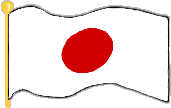蛍の光 (Hotaru no Hikari)
A Graduation & Farewell (Closing) Song
"Hotaru no hikari" used to be sung at graduations in Japan. It's sung to the tune of the Scottish song, "Auld Lang Syne". Nowadays, the tune is played in stores at the end of the day to signify that they're closing.
The first lines contain the image of a student studying at night throughout the year - by the glow of fireflies in summer and by the reflection of the moon on the snow at night in winter.
蛍の光 (Hotaru no Hikari)
The Glow of Fireflies
Farewell Song
Farewell Song
(Japanese)
(English)
蛍の光、窓の雪、
書読む月日、重ねつゝ、
何時しか年も、すぎの戸を、
開けてぞ今朝は、別れ行く。
止まるも行くも、限りとて、
互に思ふ、千萬の、
心の端を、一言に、
幸くと許り、歌うなり。
By the glow of fireflies, and the moonlit snow by the window,
Days and months spent reading,
Years have even passed, through the cedar door,
This morning, we leave.
Whether staying, or leaving,
Remember each other, in the
Depths of our hearts, in a word,
Sing, "Good luck".
Notes
Pronunciation
Hotaru no hikari, mado no yuki,
fumi yomu tsukihi, kasane tsutsu.
itsushika toshi mo, sugi no towo.
aketezo kesa ha, wakare yuku.
Tomaru mo yuku mo, kagiri tote,
katami ni omofu, chiyorozu no,
kokoro no hashi wo, hitokoto ni,
sakiku to bakari, utafu nari.
Kana
ほたるのひかり、まどのゆき、
ふみよむつきひ、かさねつゝ、
いつしかとしも、すぎのとを、
あけてぞけさは、わかれゆく
とまるもゆくも、かぎりとて、
かたみにおもふ、ちよろづの、
こゝろのはしを、ひとことに、
さきくとばかり、うとうなり。
*****
The original Japanese version of this song had two other verses, which were sung in the years prior to WW2. After the war, many people felt those verses were too militaristic and nationalistic, so they are no longer sung today.
Comments
Sadao Mazuka wrote about the use of this song in current Japanese society:
"The song of 'Hotaru-no-Hikari' is originally Scotch traditional folk song as you know. And I love the song in Japanese and English (Scotch). I don't think I would translate Japanese lyrics into English. It's a bit of a reverse translation I am afraid. I would like to respect the original lyrics. And also many Japanese people can sing it in English. Recently they rarely sing 'Hotaru-no-Hikari' at graduation ceremonies in schools. Other modern songs would be sung instead. One more reason is the rather old-fashioned Japanese words that were composed more than 100 years ago (1881). The young students can't understand the meaning of such old and difficult Japanese.
Anyway the music is well-known for most Japanese people as a closing or ending sign in some supermarkets, libraries, radio/TV broadcasts and departure music of some passenger boats.
Anyway for your presentation of Japanese lyrics that had been sung for many long years. I am sending my explanation and an opinion. I think it is part of the Japanese culture.
Here's a word-for-word translation that Sadao sent us:
I have been stacked days and months reading in the dim light such as the glow of fireflies or the moonlit snow by the window.
Years passed by unconsciously. This morning, we will open the cedar door and are leaving from all of you.
Only up to today with people, whether staying here, or leaving, even we have thousands of words to say to each other to remember.
Now we sing the song with only a word "Good Luck", in the depth of our hearts.


Thanks!
Thanks and Acknowledgements
Japanese lyrics by 稲垣千頴 (Chikai Inagaki) in the 1880's.
You can see the published version here. The book was published by Ministry of Education, Culture, Sports, Science and Technology of Japan in 1884.
Translation by Mama Lisa.
Many thanks to Sadao Mazuka for his commentary and literal translation.
























